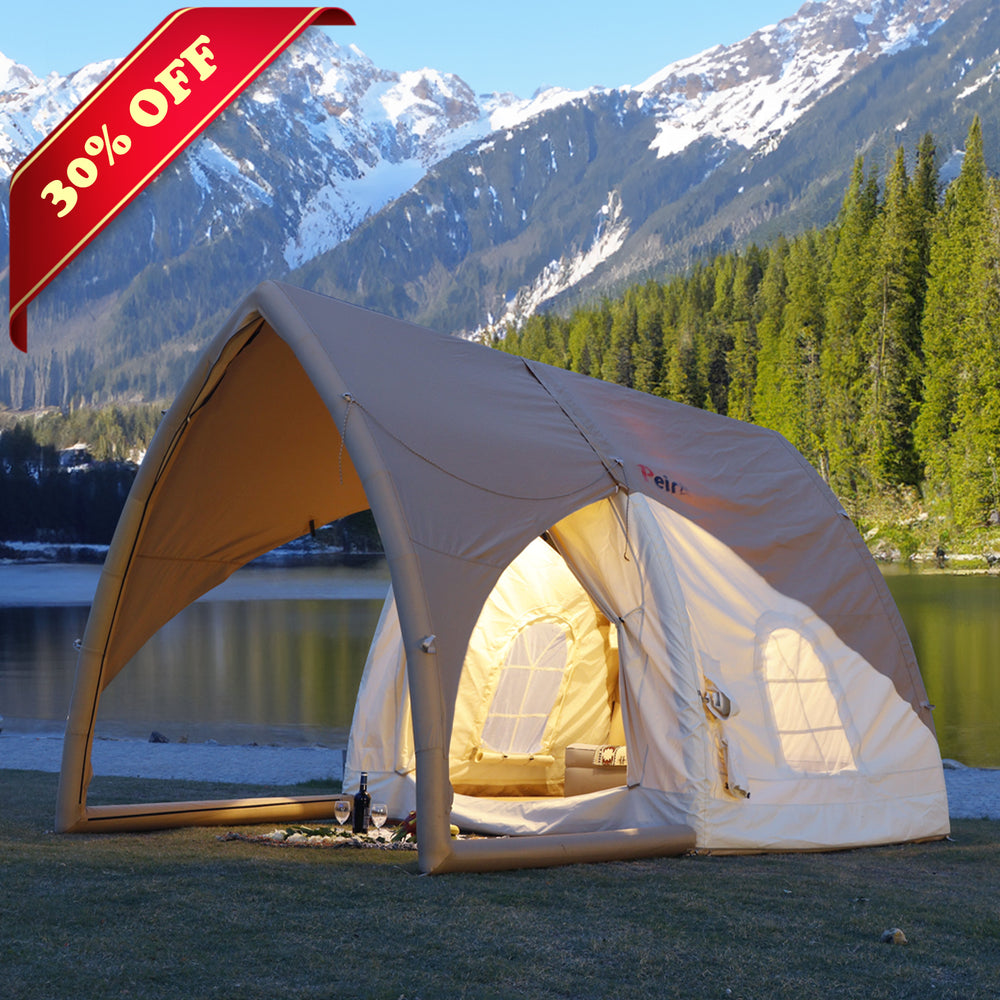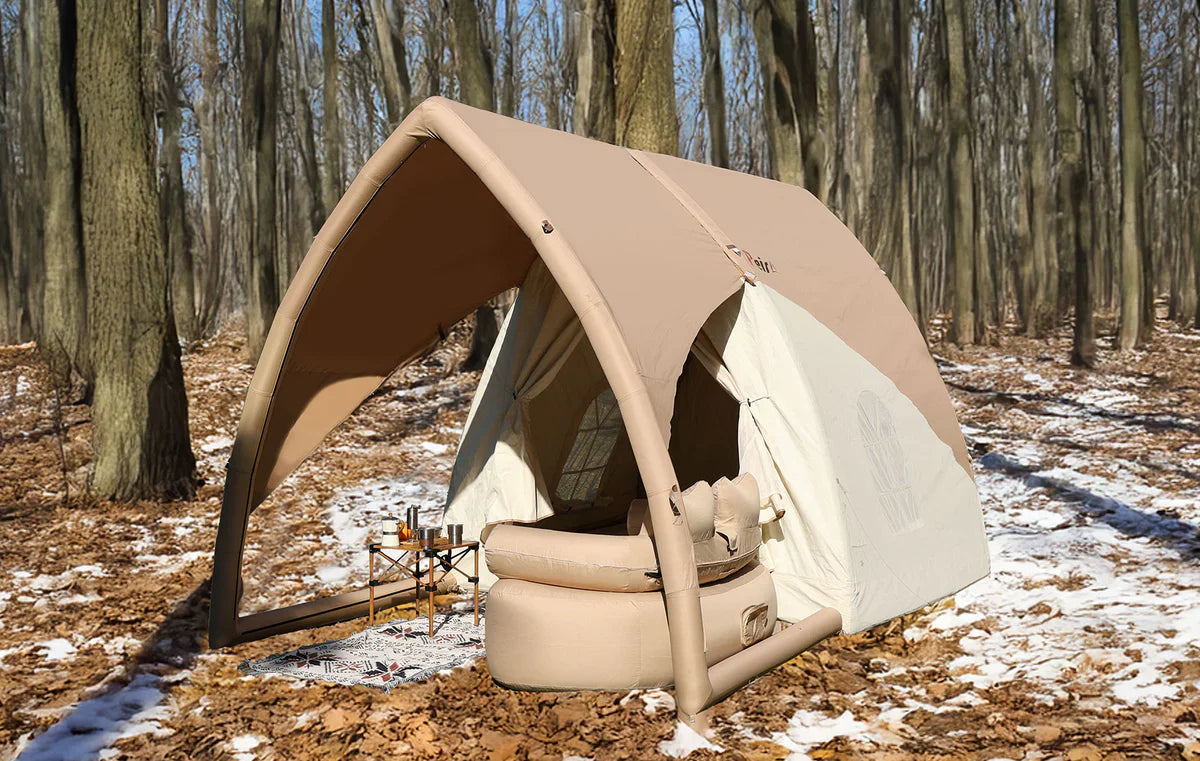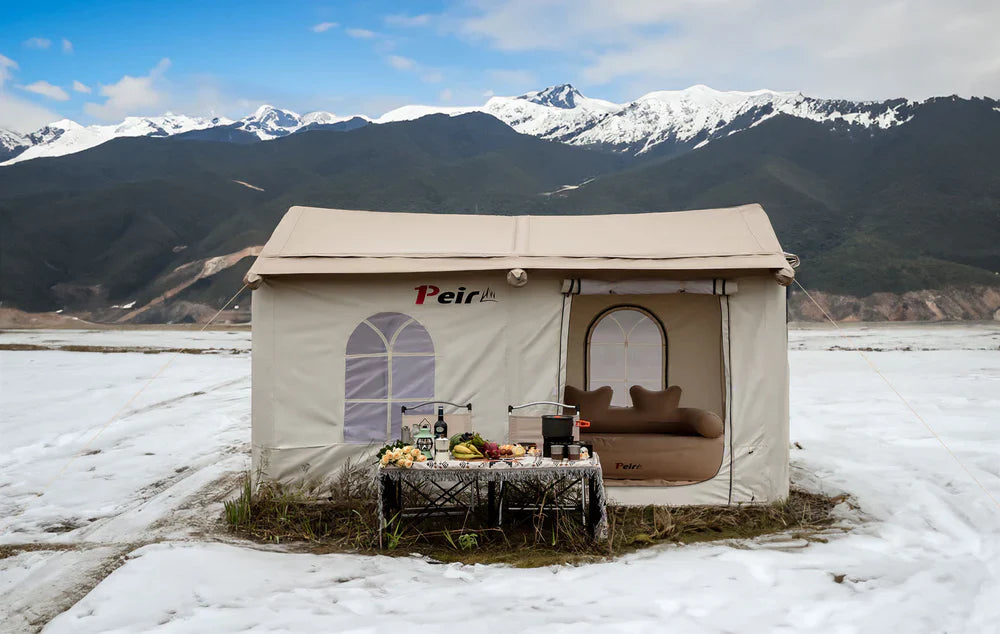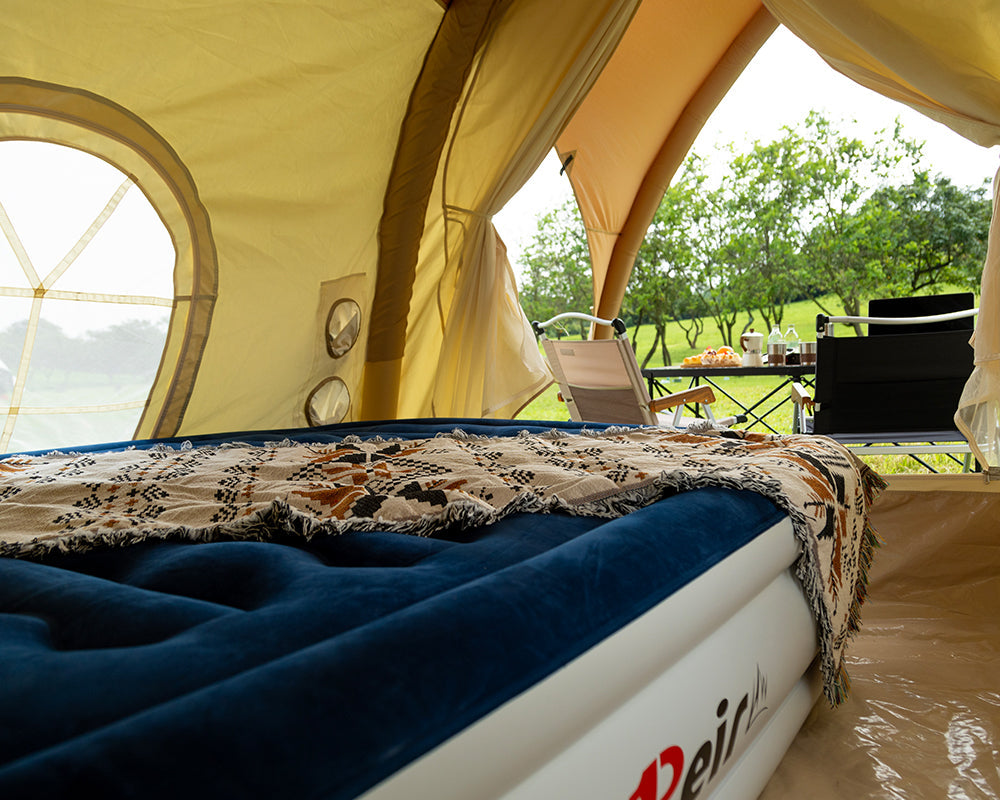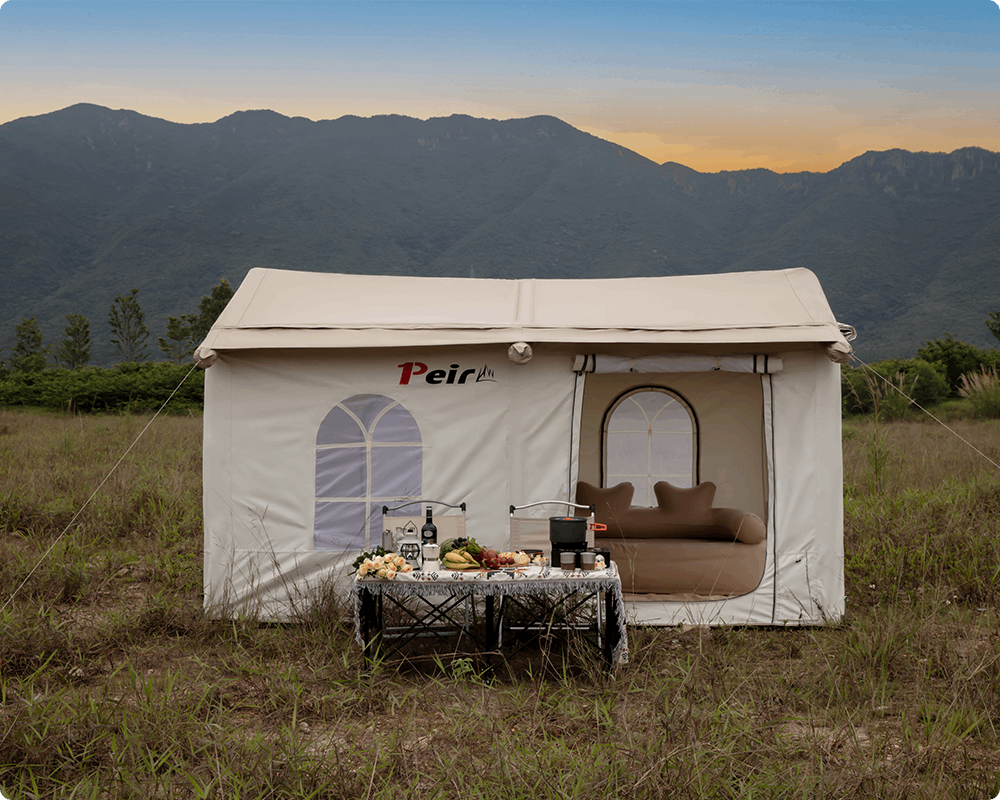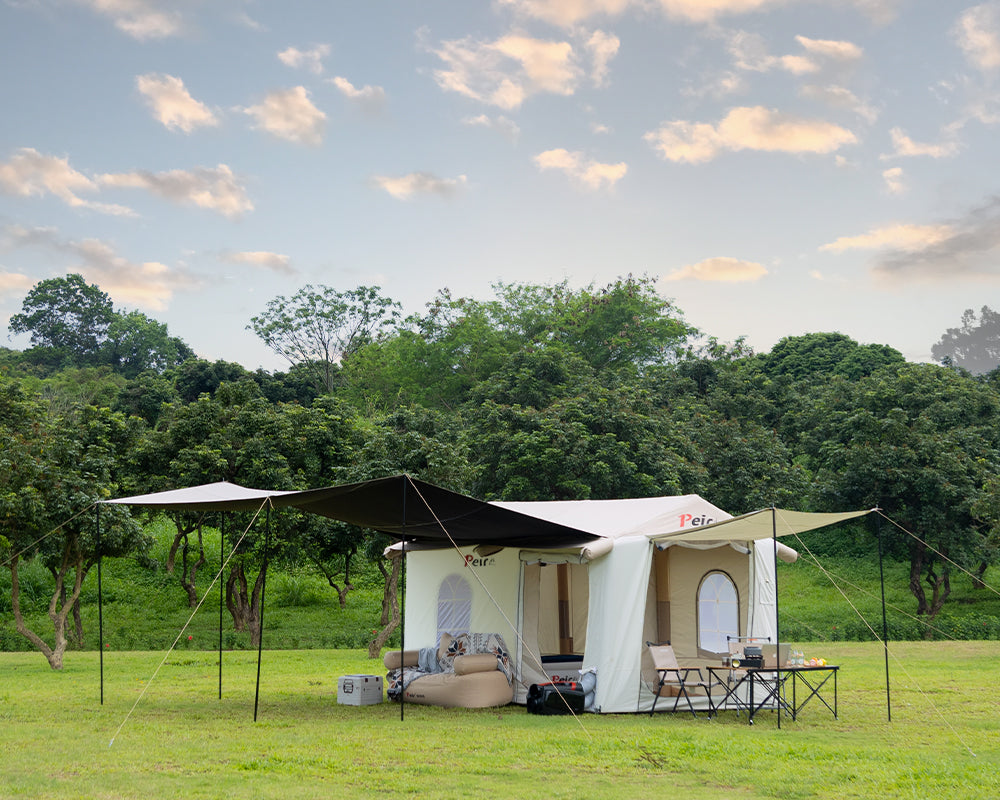If you're someone who loves the great outdoors, then you've probably heard of inflatable tents by now. They're light, easy to set up, and have that cool, futuristic vibe that makes camping feel a little more luxurious. But, here's a big question that often comes up: are inflatable tents suitable for all types of terrain? Well, let's dive in and find out together.
The Appeal of Inflatable Tents
Before we get into the nitty-gritty of terrain, let's take a moment to appreciate why inflatable tents are so popular. They’re super quick to set up, which is a game-changer after a long day of hiking or traveling. Just inflate the poles, and you’re ready to go. They’re also usually more compact when packed down, so if you're traveling light, they could be your best friend.
But even with all the perks, it’s essential to consider where you’ll be using them, because not every terrain is created equal.
Flat, Smooth Ground: The Sweet Spot
First, let’s talk about the best-case scenario: flat, smooth ground. Inflatable tents thrive here. Whether you're setting up on a grassy meadow or a dry campsite, they’re designed to be super stable when they have a solid, even base. This makes them a great choice for car camping, festivals, or any spot where the ground is level and clear of debris.
In fact, on smoother terrain, inflatable tents can offer great comfort and ease. You won’t have to worry about rocks poking through the tent floor, and since the poles are inflated, they’re less prone to being bent out of shape, giving you a sturdy and reliable shelter.
Rocky and Uneven Terrain: Proceed With Caution
Now, if you're thinking of setting up your inflatable tent in a rocky or uneven area, things get a little tricky. One of the potential downsides of inflatable tents is that they’re not as rigid as traditional pole tents. This means that uneven ground can make it more challenging to secure the tent properly, which might lead to less stability.
Rocks and sharp objects on the ground could also pose a threat to your inflatable poles. While many inflatable tents come with reinforced materials, there's always the risk of punctures if you're not careful about where you're pitching your tent. So, if you’re camping in a rocky area, you’ll need to keep a close eye on the surroundings and choose a spot that's not too tough on the inflatable poles.
Sand and Wet Terrain: Handle with Care
Now, what about sandy or wet terrain? Inflatable tents can handle a little bit of moisture, but they’re not the best choice if you're dealing with soggy, marshy ground. If the ground is too wet, the tent could struggle to stay dry on the inside, especially if there are leaks or condensation. Sand, on the other hand, is a mixed bag. It’s easy enough to set up on, but you may face issues when it comes to securing the tent. Since inflatable tents rely on air pressure for support, if you’re in a particularly windy area near the coast, the tent could easily be blown around if it's not weighted down properly.
Mountainous and High Wind Areas: Best to Be Prepared
If you’re planning to take your inflatable tent to the mountains or into areas where high winds are common, you’ll need to think carefully. The design of inflatable tents can be a bit more vulnerable to strong gusts compared to traditional tents. In higher altitudes or regions where the weather can turn quickly, it's important to ensure that your tent is adequately secured and that you're prepared with extra anchors or weights to keep it grounded.
Additionally, the temperature at higher altitudes can fluctuate a lot, and that may affect the pressure in the inflatable poles, potentially making the structure less stable.
The Verdict: It Depends on Your Adventure
So, are inflatable tents suitable for all types of terrain? It’s a bit of a mixed bag. They shine on flat, smooth ground where you can really appreciate their quick setup and comfort. But on rocky, uneven, sandy, or wet terrains, you might face some challenges, especially when it comes to stability and durability.
The key takeaway here is that inflatable tents are great for certain situations, but you need to consider the environment you’ll be camping in. If you're headed to a campsite with a solid, smooth surface, then go ahead and grab your inflatable tent. But for rugged, uneven, or unpredictable terrains, it might be worth considering a traditional tent that can handle a bit more stress.
At the end of the day, it’s all about being prepared and knowing your camping style. So, whether you're setting up at a festival or embarking on a mountain adventure, just make sure to match the right tent with the right conditions. Happy camping!






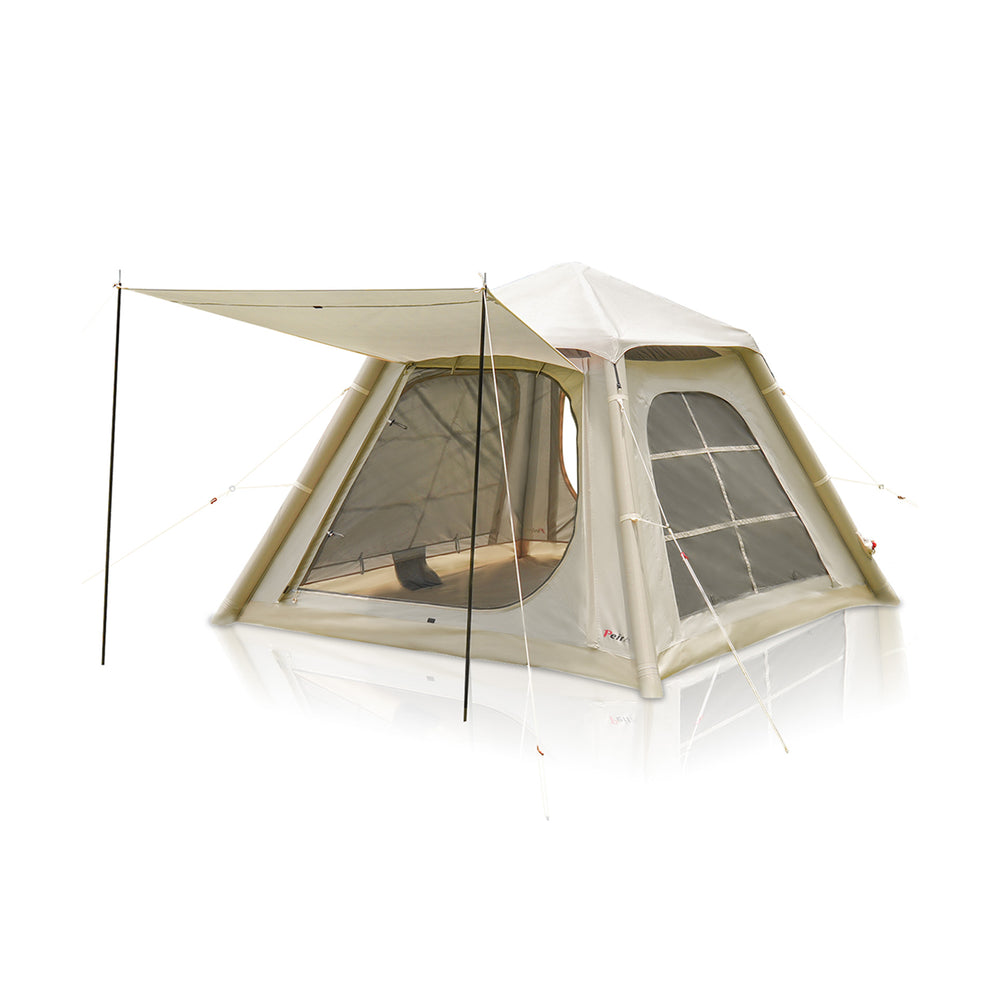
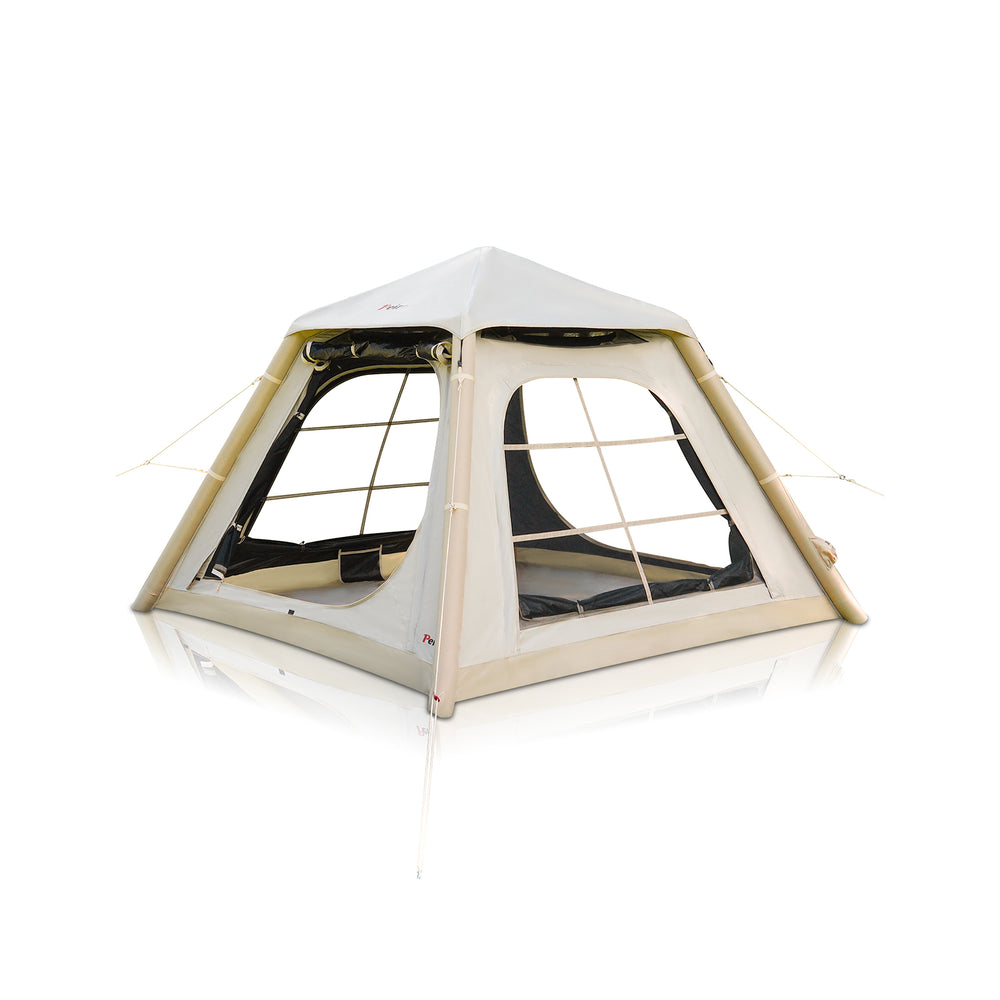
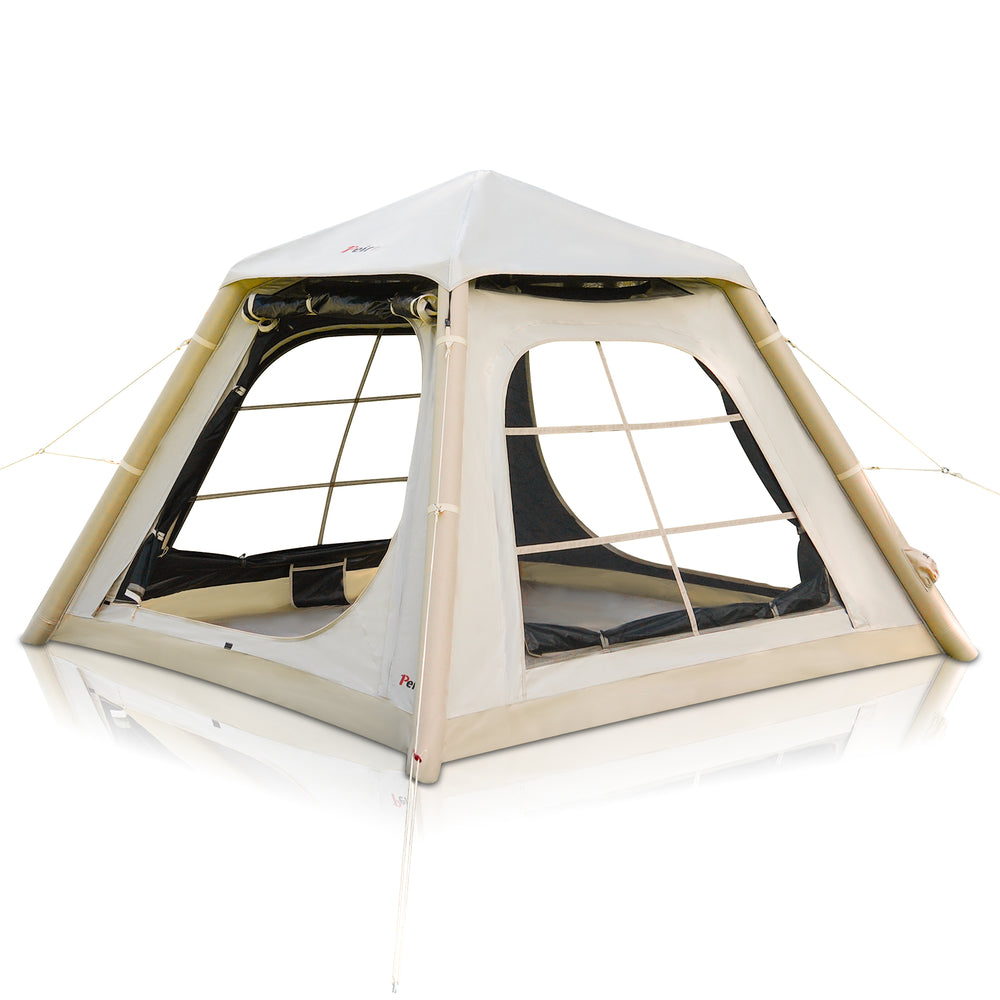
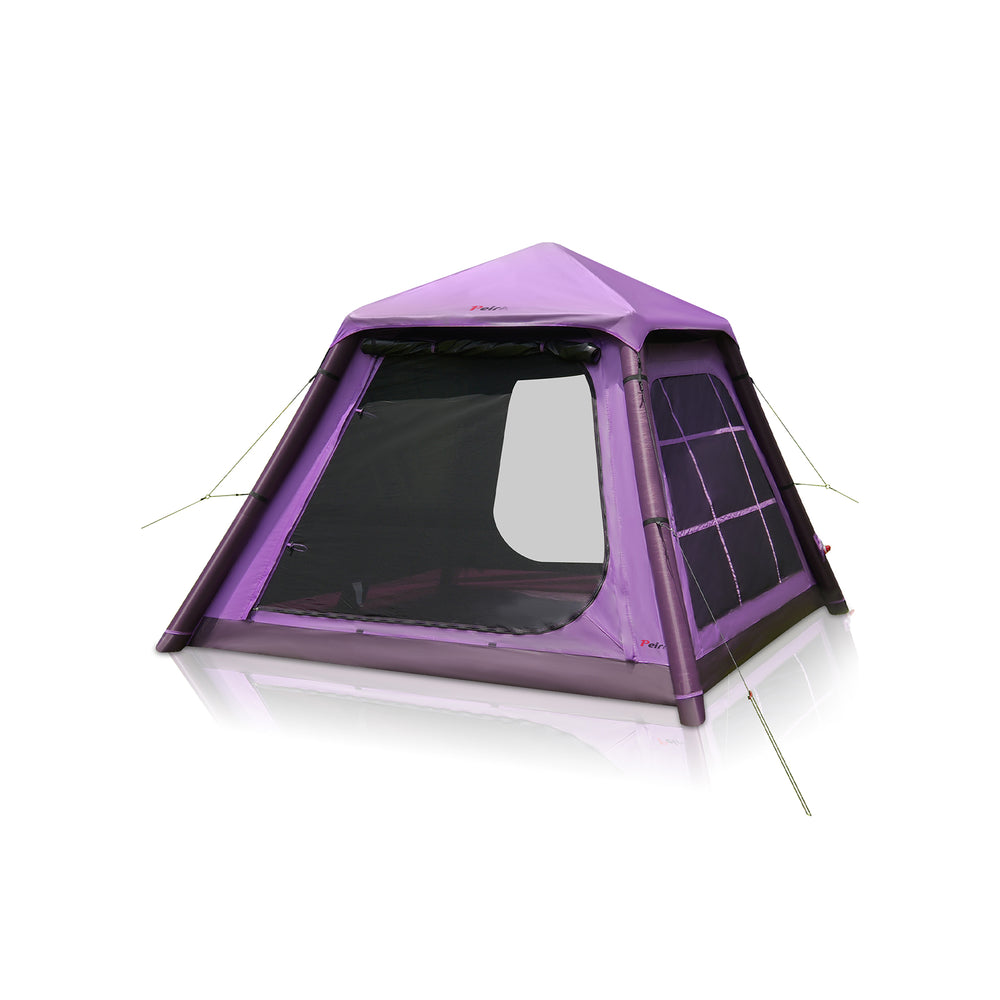


 Peirhw Inflatable House Tent - Starry Night Love
Peirhw Inflatable House Tent - Starry Night Love
 Peirhw Glamping Tents - Friendship Castle
Peirhw Glamping Tents - Friendship Castle
 Peirhw Inflatable Canopy Tent - Adventurer
Peirhw Inflatable Canopy Tent - Adventurer

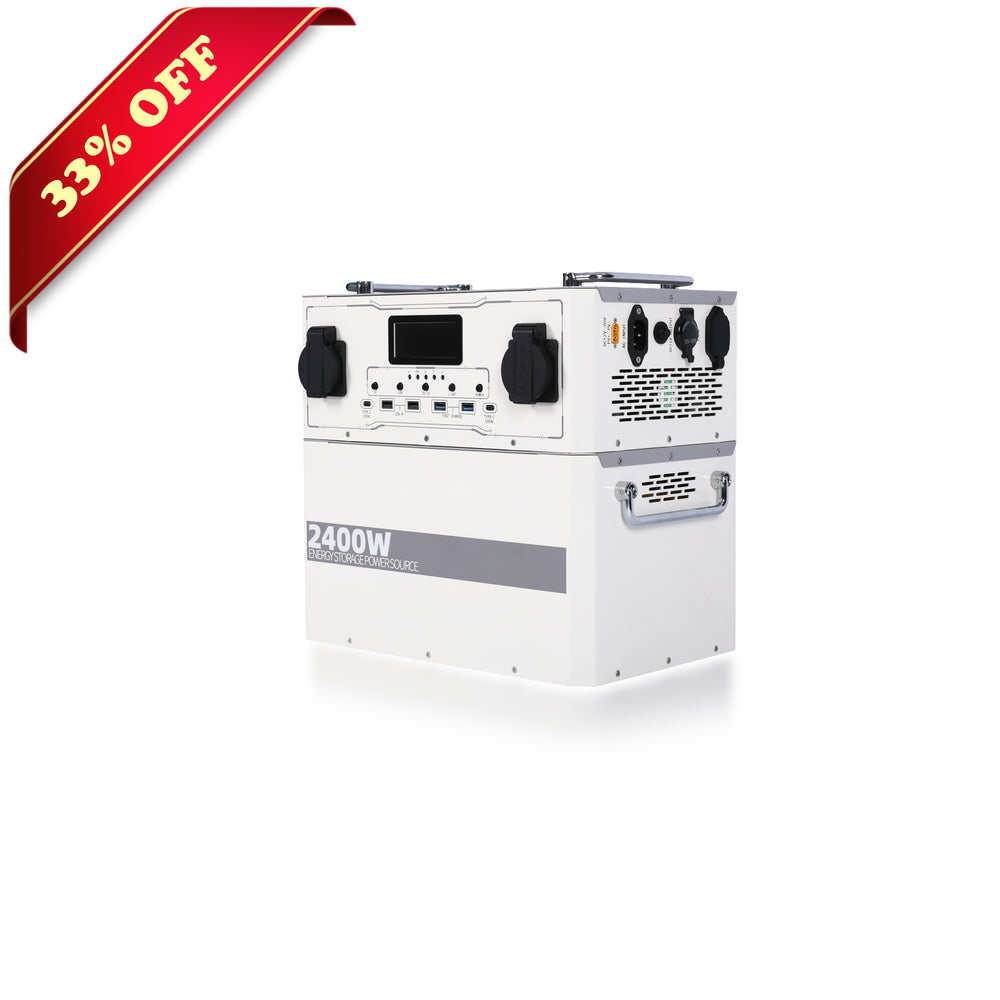
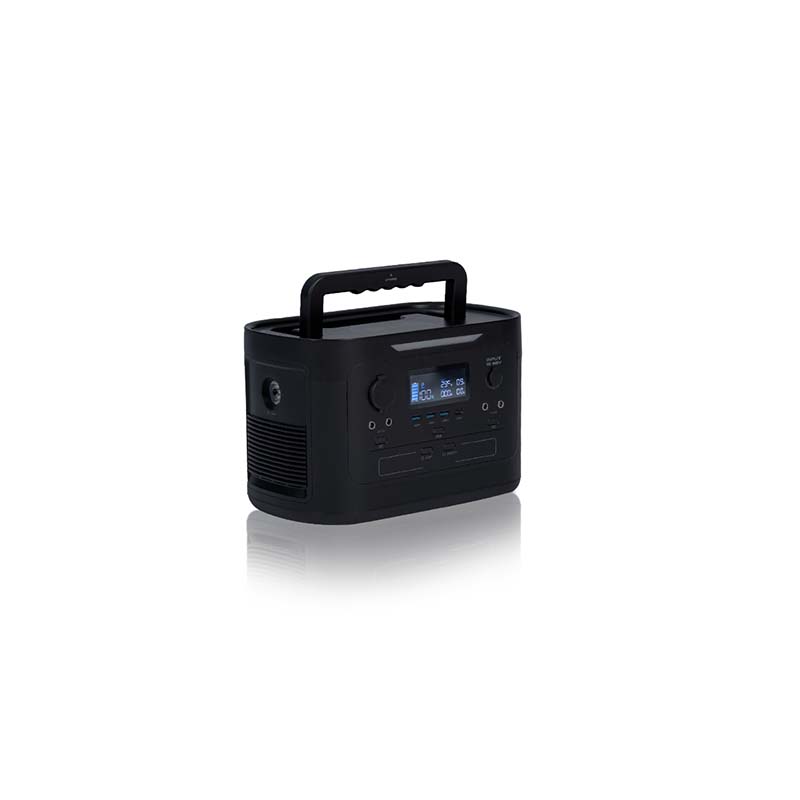
 Peirhw Portable Air Conditioner
Peirhw Portable Air Conditioner
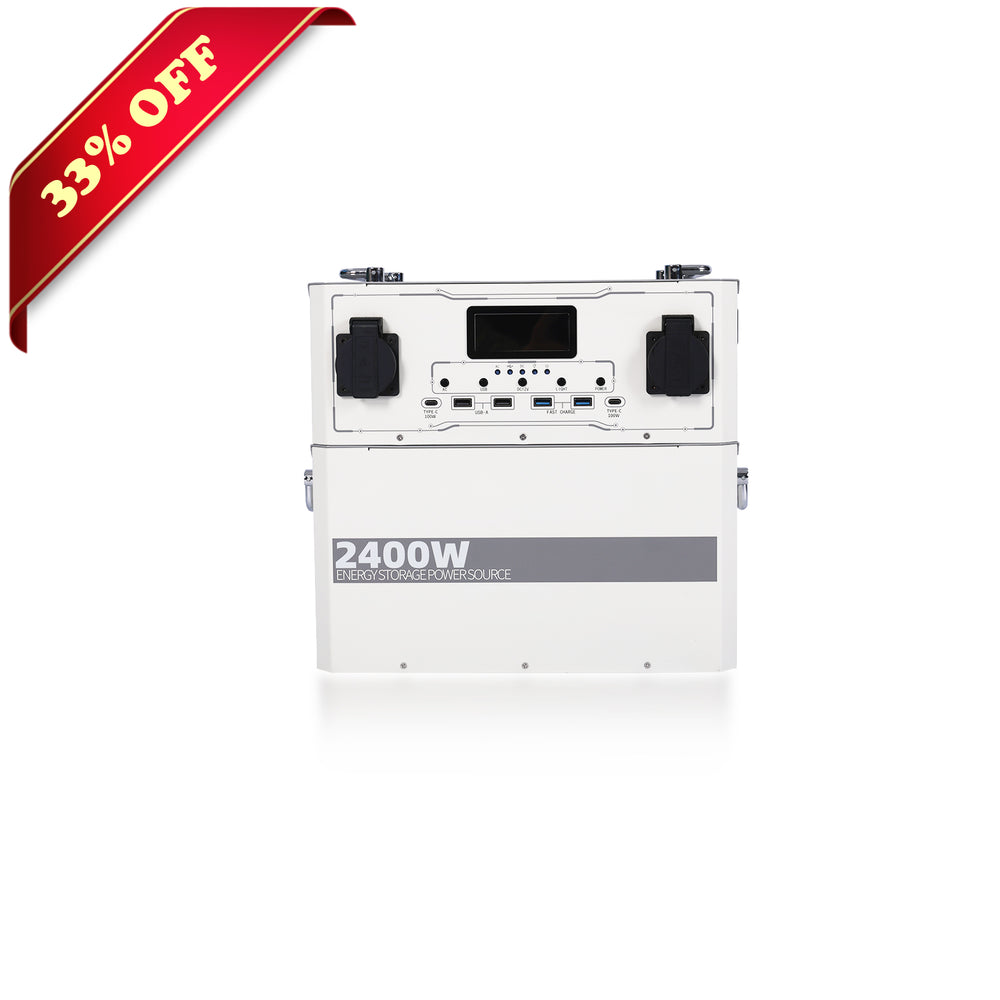 【Advance Sale】Peirhw Portable Power Station 2400W
【Advance Sale】Peirhw Portable Power Station 2400W
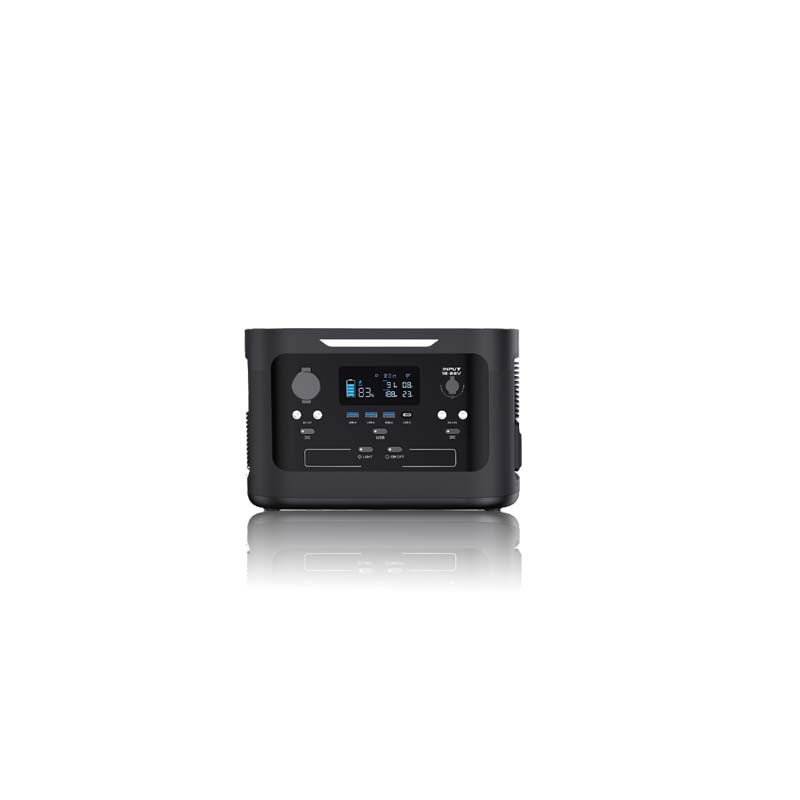 【Advance Sale】Peirhw Portable Power Station 600W
【Advance Sale】Peirhw Portable Power Station 600W

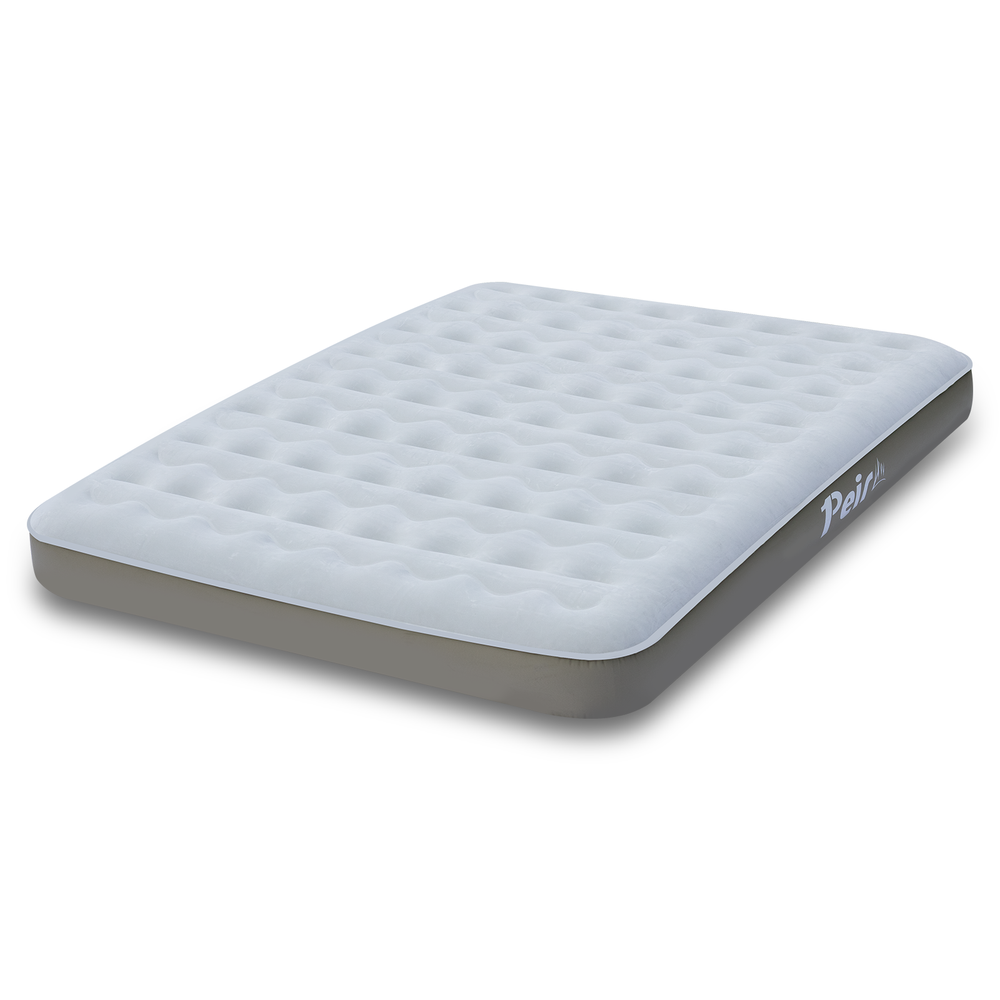



 Peirhw Self Inflating Sleeping Pad
Peirhw Self Inflating Sleeping Pad
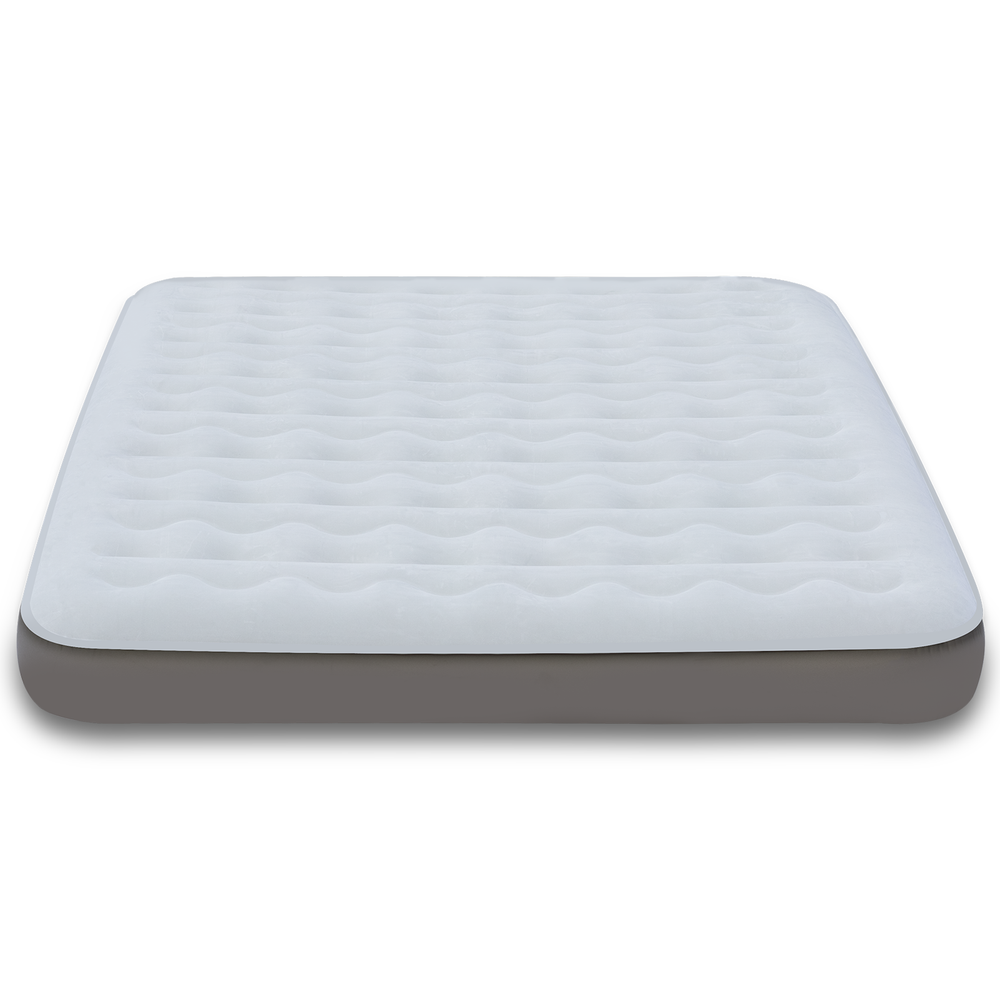 Peirhw Air Mattress (8" Queen Type)
Peirhw Air Mattress (8" Queen Type)
 Peirhw Camping Sleeping Bag
Peirhw Camping Sleeping Bag

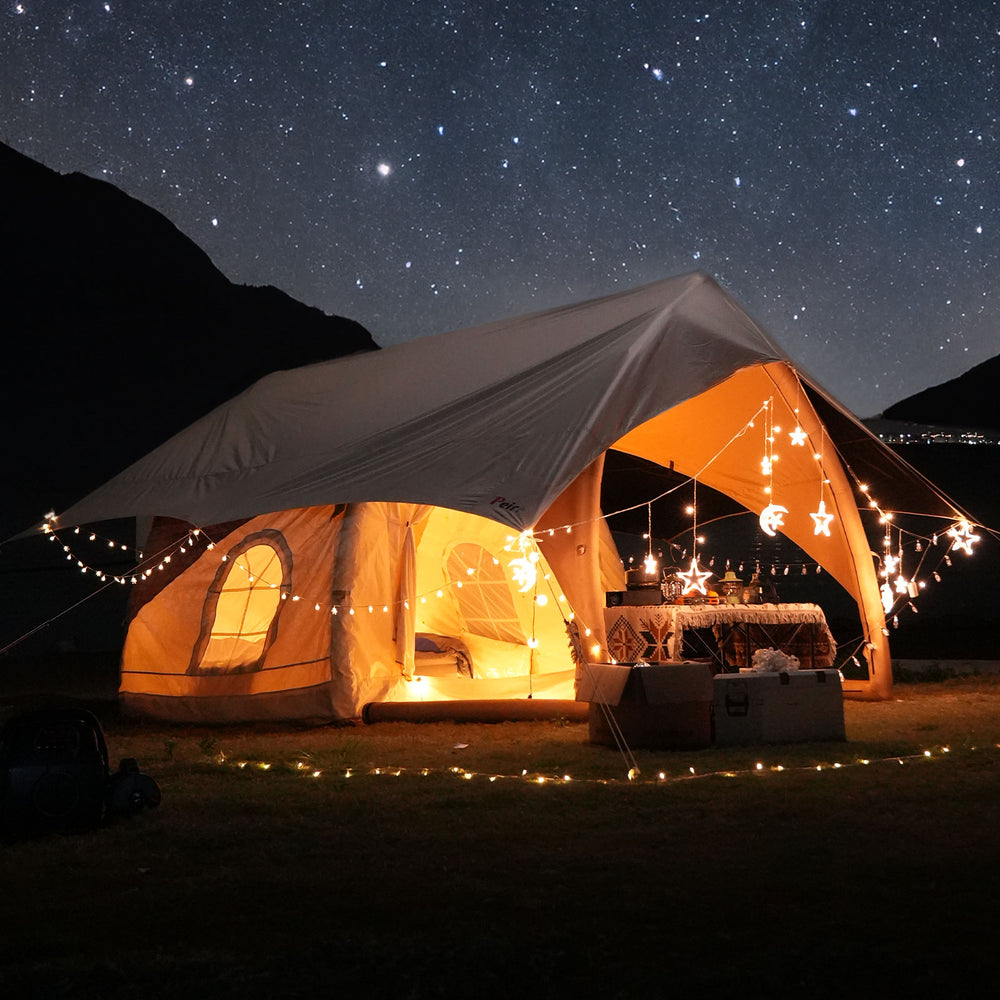
 Peirhw Butterfly-shaped Canopy for Camping
Peirhw Butterfly-shaped Canopy for Camping
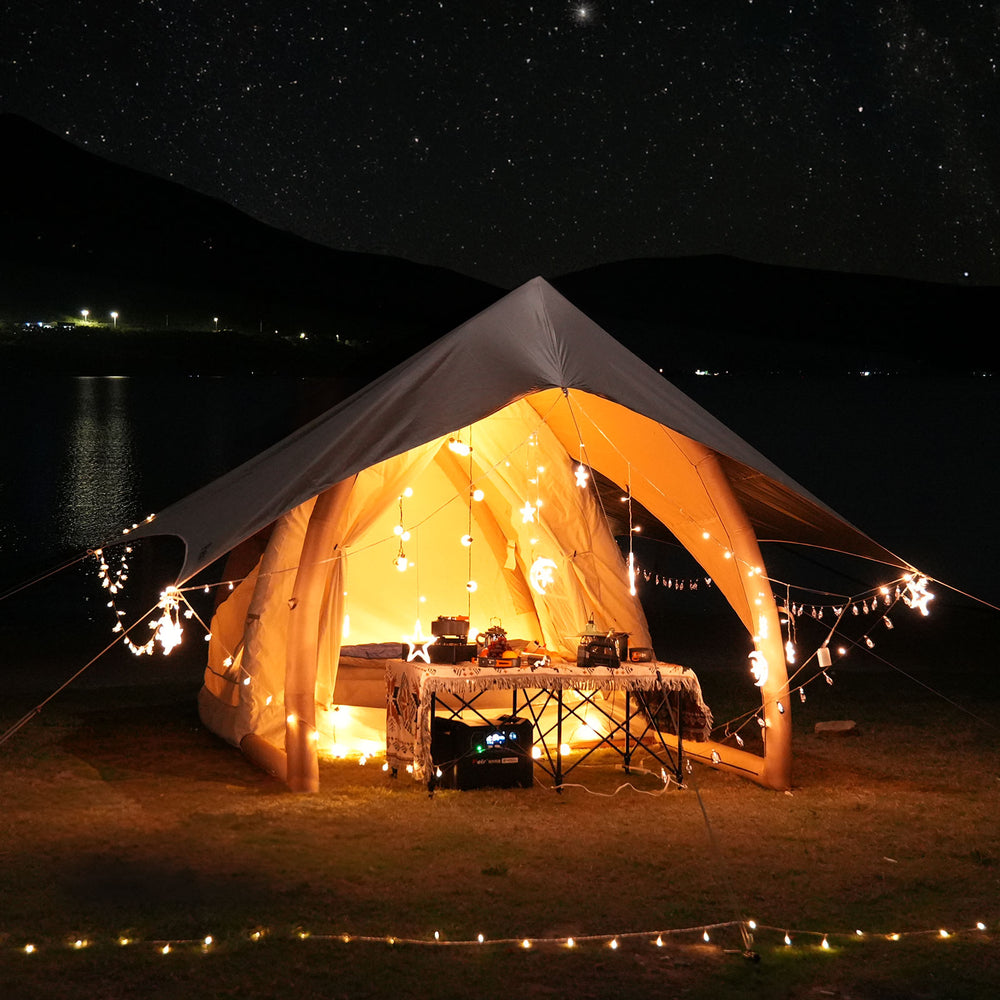 Peirhw Camping Waterproof Canopy (Cannot be Purchased Separately)
Peirhw Camping Waterproof Canopy (Cannot be Purchased Separately)

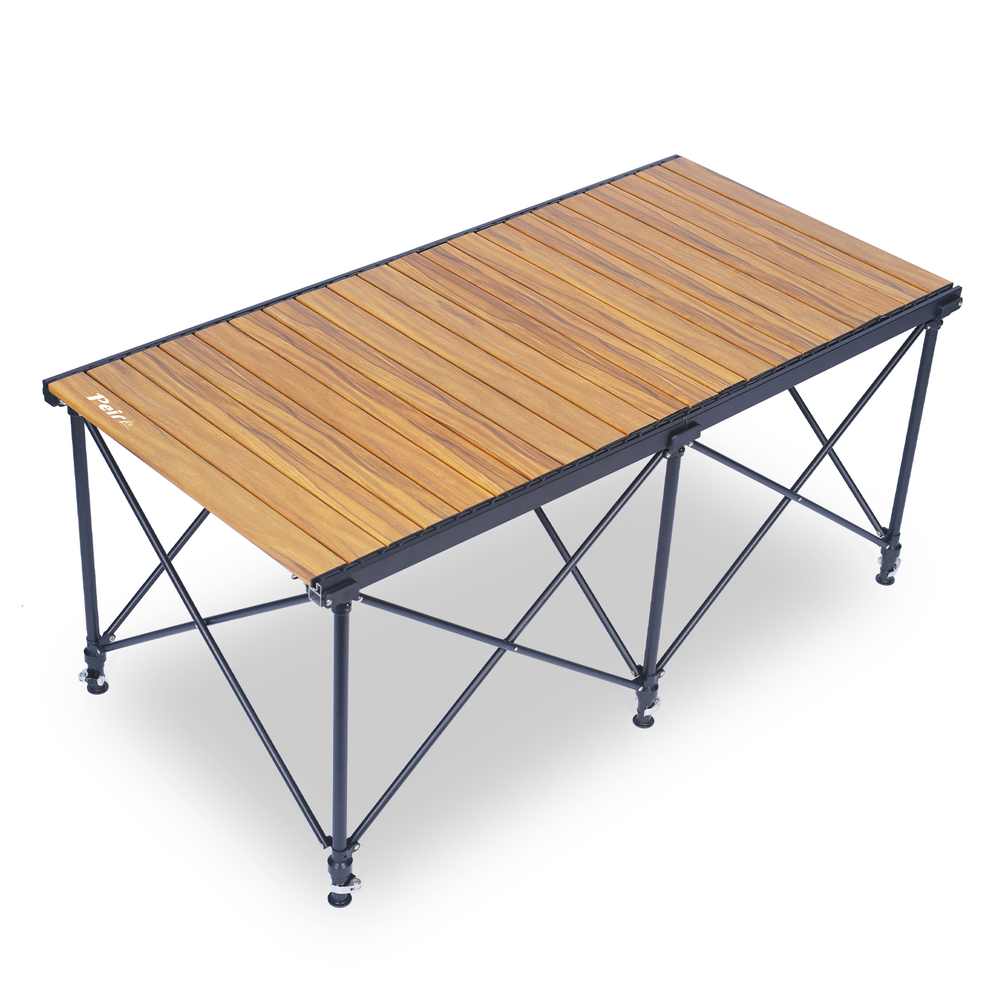
 Peirhw Outdoor Folding Chairs
Peirhw Outdoor Folding Chairs
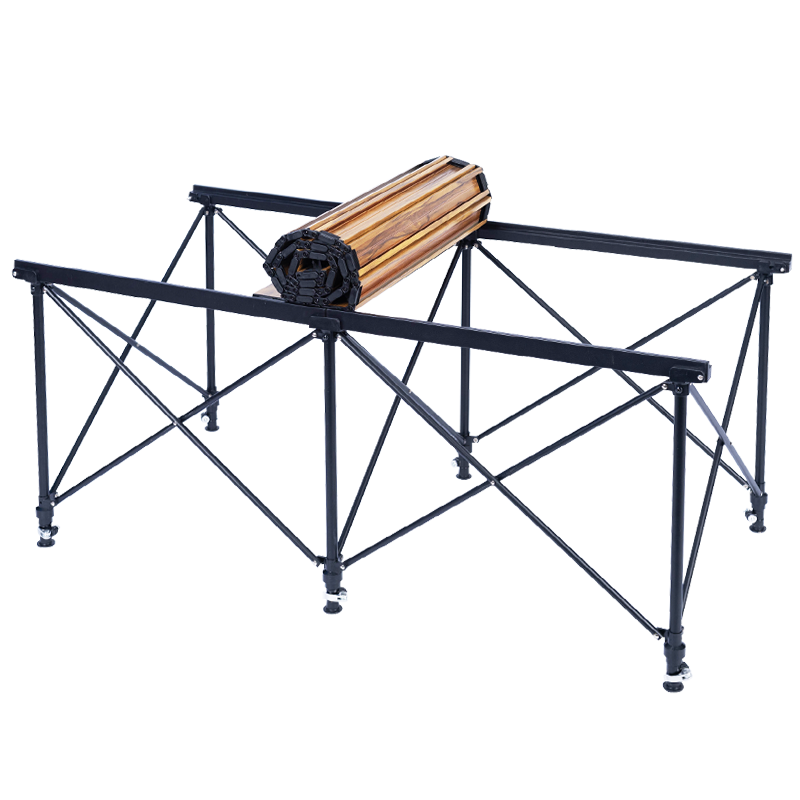 Peirhw Folding Camping Table
Peirhw Folding Camping Table





